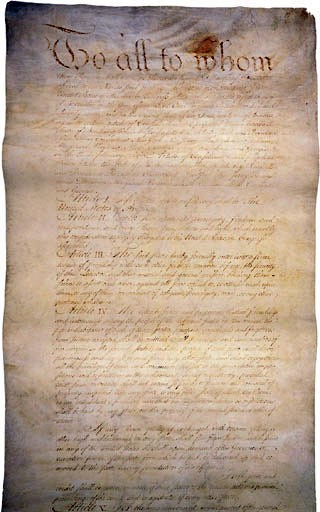
November 15, 1777 National Archives and Records Administration Abandoning the Confederation
"Mr. Lansing, observed that the true question here was, whether the Convention would adhere to or depart from the foundation of the present Confederacy;…"
- James Madison in his Notes of Debates in the Federal Convention
The Convention took up a resolution ... "that a National Government ought to be established, consisting of a supreme Legislative, Executive and Judiciary."
Ellsworth (CT) and Gorham (MA) moved to change "national Government" to "Government of the United States." Ellsworth didn't want to abolish the Confederation, and he wanted the new plan to be ratified under it. This passed without controversy.
A second resolution, that the legislatures of the United States have two branches, was taken up. Lansing (NH) moved instead that "the powers of Legislation be vested in the United States in Congress."
He contended that neither the powers given the Convention nor public opinion supported abandoning the Confederation. George Mason ridiculed Lansing's motion; Luther Martin and Roger Sherman supported it, and it lost: six states opposed, four small states for, and Maryland divided. The Articles of Confederation would not be retained. NEXT >>> |
Last updated: February 26, 2015
